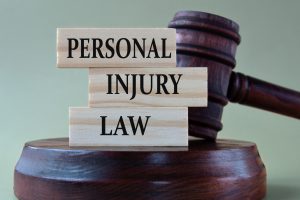Have you ever wondered what a personal injury lawyer does? Many people don't know their exact roles and duties. Understanding these can help you if you ever need one. Let's explore what a personal injury lawyer in South Carolina does. Knowing this can help you make the right choice.
Case Evaluation and Consultation
The first duty of a personal injury lawyer is to evaluate your case. They look at the details of your accident. They check medical records and other evidence. A personal injury lawyer in Columbia SC is skilled in this area. They can tell you if your case is worth pursuing. This saves you time and money. You can afford a lawyer for your car accident injury claim. You cannot afford not to hire one. At Joye Law Firm, their South Carolina car accident lawyers can take your case on a contingency fee basis.
Gathering and Preserving Evidence
Gathering evidence is a crucial duty. Personal injury lawyers collect all necessary documents. This includes medical records, police reports, and witness statements. They also gather photographic evidence. Strong evidence supports your claim. Lawyers know what evidence is needed. They have the experience to gather it effectively. This makes your case stronger. Proper evidence collection is vital. It can make or break your case. Lawyers ensure no detail is overlooked.
Dealing with Insurance Companies
Negotiating with insurance companies is another crucial duty. Insurance companies often try to pay less. Your lawyer negotiates on your behalf. They aim to get you fair compensation. They understand insurance tactics. Lawyers use their skills to counter these tactics. They fight for your rights. This ensures you get what you deserve. Effective negotiation can significantly increase your compensation. Lawyers handle the stress of dealing with insurers. This allows you to focus on your recovery.
Filing Legal Documents and Paperwork
Filing legal documents is part of a lawyer's job. They handle all the paperwork for your case. This includes filing claims and legal notices. Proper documentation is crucial. It ensures your case proceeds smoothly. Lawyers know the legal requirements. They ensure all documents are correct. This prevents delays and mistakes. Accurate paperwork is essential. It keeps your case on track. Lawyers take care of the details for you.
Court Representation
If your case goes to court, your lawyer represents you. They present your case to the judge and jury. They use evidence to support your claim. Lawyers cross-examine witnesses. They aim to prove your case. Court representation requires skill and experience. Lawyers prepare thoroughly for court. They work hard to win your case. Their courtroom expertise can be critical. A solid legal presence increases your chances of success. Lawyers advocate for your best interests.
Providing Legal Advice and Guidance
Providing legal advice is a crucial duty. Your lawyer guides you through the legal process. They explain your rights and options. Legal advice helps you make informed decisions. Lawyers keep you updated on your case. They answer your questions. Good advice is crucial for a successful outcome. They help you understand complex legal terms. Clear guidance from a lawyer can ease your worries. Proper advice ensures you make the best choices.
Handling Settlements
Many cases are settled out of court. Your lawyer handles settlement negotiations. They aim to get you the best deal. Settlements can save time and stress. Lawyers know how to negotiate settlements. They ensure the terms are fair. They protect your interests during settlement talks. Effective settlement handling can provide quicker resolutions. Lawyers strive for the most favourable terms. They ensure you are not taken advantage of.
Emotional and Moral Support
Emotional support is an essential duty. Lawyers understand the stress of injury cases. They offer compassion and understanding. They support you through tough times. Lawyers help you stay strong. They provide reassurance and hope. Emotional support makes a big difference. Having a supportive lawyer can ease your burden. They offer a listening ear when needed. Their support helps you focus on recovery.
Conclusion
A personal injury lawyer has many duties. They assess your case and gather evidence. They negotiate with insurance companies. Lawyers file legal documents and represent you in court. They provide legal advice and handle settlements. They also support you emotionally. Understanding these duties helps you appreciate their role. It shows you the importance of hiring a good lawyer. If you need legal help, find a skilled personal injury lawyer. They will fight for your rights and help you get justice. A dedicated lawyer can significantly impact your case. Trust their expertise to guide you through the legal process.





















